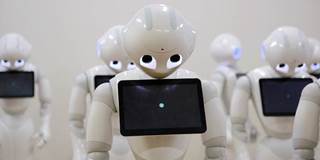How Scary is Disruptive Technology?
The US unemployment rate currently is less than half the rate in the European Union. There are many reasons for the disparity; but a critical one is the absence in the US of labor laws and union rules that prevent employees and firms from adapting to the latest innovations.
CAMBRIDGE – The steady stream of improvements in driverless cars has convinced me that before too long the roads will be filled with cars and trucks operating without humans at the wheel. Likewise, I am convinced that the revolution in artificial intelligence will allow computers and robots to do many of the tasks that white-collar workers now do.
It’s not surprising, therefore, that many people are worried about the fate of those whose jobs are vulnerable – or have already been lost – to the latest disruptive technology. What will happen to the millions of men and women who now drive trucks and taxis when the trucks and taxis can drive themselves? What will happen to the accountants and health workers when computers can do their jobs?
Some analysts have estimated that, with many fewer employees needed to produce the current volume of goods and services, a large share of current employment could be made redundant.



CAMBRIDGE – The steady stream of improvements in driverless cars has convinced me that before too long the roads will be filled with cars and trucks operating without humans at the wheel. Likewise, I am convinced that the revolution in artificial intelligence will allow computers and robots to do many of the tasks that white-collar workers now do.
It’s not surprising, therefore, that many people are worried about the fate of those whose jobs are vulnerable – or have already been lost – to the latest disruptive technology. What will happen to the millions of men and women who now drive trucks and taxis when the trucks and taxis can drive themselves? What will happen to the accountants and health workers when computers can do their jobs?
Some analysts have estimated that, with many fewer employees needed to produce the current volume of goods and services, a large share of current employment could be made redundant.